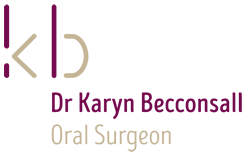Wisdom Teeth
Wisdom teeth is the common name for the last molar tooth in the mouth. Other names commonly used for these teeth are third molar teeth or “8’s”. This is because they are the third molar tooth and the eighth tooth back from the central front tooth.
Wisdom teeth commonly start to erupt and become a problem in a persons late teenage years to mid twenties. Unfortunately there is no time when a wisdom tooth can no longer be a problem. If you have an impacted wisdom tooth it can still cause problems right up to your old age. Studies have shown that early evaluation and treatment result in a superior outcome for the patient.
Problems Wisdom Teeth Can Cause
The main problem with wisdom teeth is the lack of space for them to erupt into the mouth completely. This can cause the following problems.
Of all the problems below, only “infection” gives you any forewarning with discomfort once or twice a year, all the others develop silently and by the time symptoms occur the problem is more complex with more difficult surgery. Patients will often wonder why their dentist is getting concerned about their wisdom teeth, especially if they haven’t been symptomatic. It is definitely worthwhile having them checked early to avoid an escalation of problems.
Decay
Wisdom teeth can be very difficult to clean, and therefore often get decayed. It is usually not possible to repair such teeth simply because they are so inaccessible and will continue to decay around the repair.
Infection
Impacted wisdom teeth very often have a flap of gum over the back called an “operculum”. This area is always chronically infected and will undergo occasional acute flare-ups every 2-3 months which last 3-5 days. People often refer to this as their wisdom teeth “coming through” when in fact they are stuck and as “through” as they will ever be. When there is an acute flare-up, the gum around the tooth can get quite swollen and tender to bite on. There is often a discharge of pus, a foul taste and bad breath. Swelling can spread to the cheek and to the area and glands under the jaw.
Damage to neighbouring teeth. Often the wisdom tooth will be impacted against the second molar tooth. The point where the wisdom tooth touches the second molar tooth is prone to decay and is the focus of infection or resorption of the second molar tooth. Impacted wisdom teeth can damage this second molar and result in the loss of the second molar tooth in addition to the wisdom tooth. Very often the wisdom tooth has been present for many years with minimal symptoms and the first symptom is toothache from death of the second molar tooth.
Tooth crowding
Some authorities believe third molars can cause crowding and misalignment of the front teeth. Some patients will feel a definite pressure effect from the action of the wisdom teeth, while in others there will be no pressure effect at all. Orthodontists can sometimes require the removal of the third molar teeth to help combat this pressure effect. Often to create some space to realign the teeth orthodontists will ask for the wisdom teeth to be removed.
Cysts
Some impacted wisdom teeth will undergo cystic transformation. Cysts are usually small but can expand to become extremely extensive. Extensive cysts can produce significant deformity and require extensive surgery. Patients are usually totally unaware of cysts growing, it is recommended you obtain an X-ray to check your wisdom teeth once you have reached your 20’s. One in fifty people will have a cyst associated with an impacted wisdom tooth.
Tumours
Tumour formation around impacted third molars is uncommon, but does occur in 1% of impacted wisdom teeth.
Jaw fracture
Individuals who play contact sports have a greater risk of jaw fracture if they have impacted wisdom teeth. If the impacted tooth has undergone cystic transformation the jaw bone becomes expanded and eroded leading to a higher possibility of fracture.
Removal of Wisdom Teeth
As a general guideline, if you have impacted or partially erupted wisdom teeth then you are usually better off having them removed. Often if one side causes trouble then the other side will too.
You will need a consultation and X-rays to determine how many wisdom teeth you have. In general most people are symmetrical so if one side is giving you problems then it’s likely the other side will too.
If you need more than one wisdom tooth removed then it is best to remove them all in one sitting. People have been surveyed on the different combinations of treatment; all who had all 4 wisdom teeth removed say they would do it again this way, those who had 1 or 2 removed and the other side removed at a later date all felt they would have rather had it done at one sitting. Having them removed at two different times means two different healing periods and double the amount of time off work or study. Many people think that if they have four wisdom teeth out they will have four times the pain. Luckily this is not the case and pain can be effectively managed.
